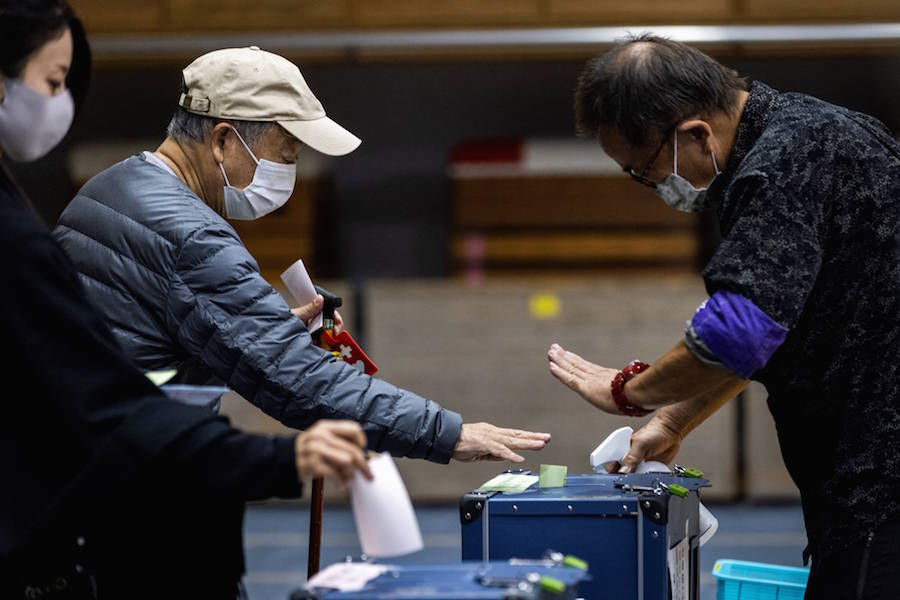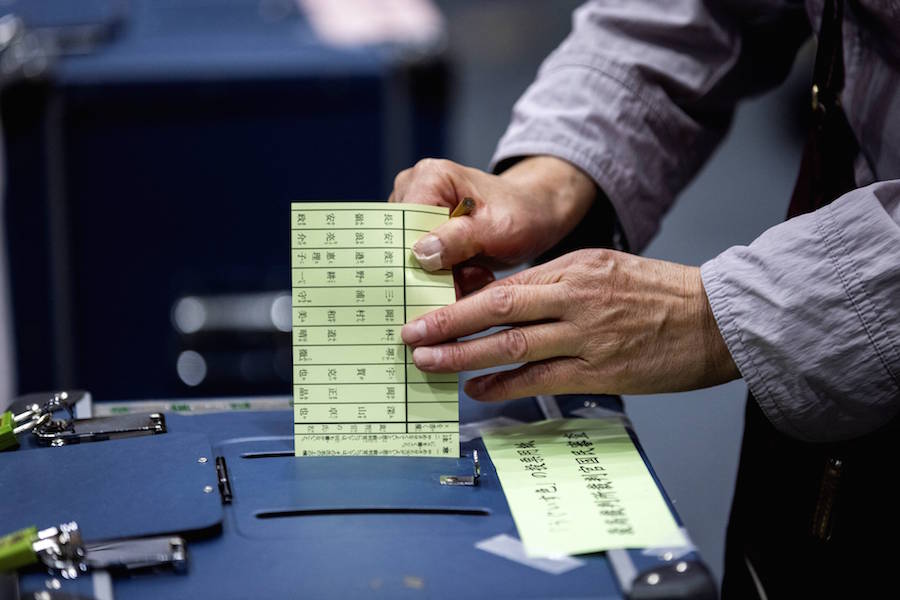
Voting kicked off in Japan’s general election on Sunday with Prime Minister Fumio Kishida hoping to win over a pandemic-fatigued public with spending promises as his long-ruling conservatives seek a fresh start.
Kishida became leader of the Liberal Democratic Party a month ago after Yoshihide Suga resigned just a year into the job, partly due to public discontent over his response to the Covid-19 crisis.
Following a record wave of infections that pushed the Tokyo Olympics behind closed doors, cases have now plummeted and most restrictions have been lifted.
While this may ease some voters’ frustrations, the LDP — which has held power almost continuously since the 1950s — is likely to lose seats and may have trouble retaining its commanding majority, analysts say.
Kishida, 64, has pledged to issue a fresh stimulus package worth tens of trillions of yen to counter the impact of the pandemic on the world’s third-largest economy.
He has also outlined plans to distribute wealth more fairly under a so-called new capitalism, although details so far remain vague.
Voters in Tokyo told AFP the virus crisis was an important factor in their decision.
“The economy is suffering because of the coronavirus, so I compared the politicians’ responses,” said Chihiro Sato, 38, a housewife and mother of a toddler.
Teruyo Kaneko, a 76-year-old retiree, said she was “focused on virus policies, and also wanted to say something to the long-running government about its arbitrary way of decision-making”.
But engineer Hiroyasu Onishi, 79, said he was more concerned by “the military threat from China”.
As of 11 am, voter turnout stood at 11.3 percent, down nearly one percentage point on the last general election in 2017.
Japan’s 106 million voters have “struggled to get excited about the new prime minister”, said Stefan Angrick, a senior economist at Moody’s Analytics.
“Kishida faces headwinds from weak ratings and a more coordinated opposition, but an improving Covid-19 situation and economic outlook are factors in his favour.”

– Revolving-door risk –
Across Japan, 1,051 candidates are standing for election to parliament’s lower house.
In recent decades, votes against the LDP have been split between multiple major opposition parties, but this time five rival parties have boosted cooperation in a bid to dent its stranglehold.
Nonetheless, the LDP enjoys “great advantages” in Japan’s political arena, with a strong network of supporters nationwide, said Michael Cucek, assistant professor of Asian studies at Temple University.
The LDP wants to put a tumultuous year behind it, but “the fact that they are still having to fight so hard is, for them, highly embarrassing”, Cucek told AFP.
Kishida’s approval ratings are around 50 percent, the lowest in two decades for a new administration in Japan.
He has set a comfortable target of winning 233 of the 465 lower-house seats — a simple majority including lawmakers from the LDP’s junior coalition partner Komeito.
However, such a result would be seen as a setback for the LDP, which previously held 276 seats on its own.
Even if the party wins, a poor showing could lead to losses in next summer’s upper-house vote, risking a return to Japan’s history of revolving-door premierships, analysts warn.
Since World War II, only five politicians have hung on to the prime minister’s office for five years or longer, with some lasting just two months.
Suga’s predecessor Shinzo Abe was the longest-serving prime minister in Japan’s history, in power from 2012 to 2020 after his first one-year term.
“Kishida will need to convince the public and younger members of his party that continuity does not mean status quo, but rather maintaining what has worked and improving on what has not,” Angrick said.
As well as vowing to tackle the pandemic and working to boost the middle class, the LDP has said it will aim to increase defence spending to counter threats from China and North Korea.
Meanwhile, some opposition parties have emphasised their support for social causes that Kishida has so far distanced himself from, such as same-sex marriage and allowing married couples to have different surnames.
hih-ras-kh/kaf/leg
© Agence France-Presse







